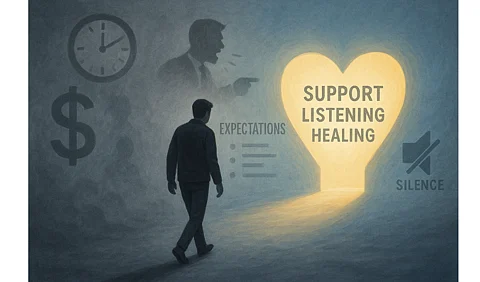June is Men’s Mental Health Awareness Month, and it is a great reminder that emotional well-being is no less important than physical well-being. For many men, asking for help or opening up about mental health is one of the hardest things to do—often because of how society defines masculinity.
There are many expectations placed on men that are outdated, restrictive, and sometimes entirely false. Too often, men are expected to be strong, stoic, and silent about their struggles. These expectations create barriers to seeking help and barriers to acknowledging that they need help.
The 2025 theme for Men's Health Month and Men's Health Week is "Closing the Empathy Gap". This theme focuses on addressing the societal barriers that prevent men from seeking help and prioritizing their mental health. It encourages everyone to advocate for, listen to, and support men in their lives.


